I’m really happy to welcome back Challenge 69for the final section of this Nick Cave retrospective, don’t forget that you can catch up on previous editions here
Push The Sky Away (2012) - ‘Push The Sky Away’
“It gets you right down to your soul.”
Push the Sky Away is the first PH (Post Mick Harvey) Bad Seeds album.
Whatever wrestling over influence had taken place before was now over, Mick Harvey had left the band (after thirty years of working with Nick Cave), leaving Warren Ellis firmly established in the hot seat. While Cave keeps an undisputed grip on the lyrical pen, Ellis, with his multi-instrumental virtuosity (and noise loops!), now picks up an equal credit for the music. In the positive column of line-up changes, Barry Adamson (a founding member) had rejoined the band, making him the first serial Seed.
It doesn’t take long for Warren’s sway to become apparent. ‘We No Who U R’ makes a great, evocative opener to the album, but it is immediately clear that sparseness is the new musical order of the day. The lack of traditional Bad Seed musical depth below this track puts added pressure on Cave’s vocals, but the increased confidence he now has in his voice carries the song, ably supported by some striking backing vocals from Martha Skye Murphy (whose solo work is well worth checking out).
There is much more minimalism to follow:
In the sad (yet uplifting) even less instrumentally adorned, ‘Wide Lovely Eyes’, Cave (ironically?) implies they have, “dismantled the fun fair, shut down the rides.”
The ‘soundtracky’ Water’s Edge’ comes complete with more voiceover than vocal, as Nick menacingly warns that as, “you grow old, you grow cold.”
The devotional-sounding ‘Mermaids’ finds Cave once more exploring his complex relationship with faith, seeming to declare equal belief in God and mermaids!
‘We Real Cool’ features more rumbling film music, over which Nick commentates on some of his favourite internet ‘facts’, such as Sirius being, “8.6 light years away.”
‘Finishing Jubilee Street’ is not a reprise, more a meta song about writing a song that turns out to be the poorest realised example of the band’s ‘new sparsity’.
As this retrospective suggests, to Cave traditionalists, those who had happily embarked on ‘The Ship Song’, or angrily taken up arms alongside ‘Stagger Lee’, this new, pared back Seed sound could run the danger of turning into a trial.
Just in time, though, before any need arises to pass a sentence on ‘Push the Sky Away’, two Bad Seed classics arrive to set any doubters free.
‘Jubilee Street’ is the ultimate ‘build’ song. After starting with a low-key, slow piano motif, the Bad Seeds are finally let off the leash, to show off their skills, delivering an insistent, yet barely perceptible, progression. More instruments join, the pace quickens, and the lyrics grow ever more manic (“she had a little black book, and my name was written on every page.,) until the whole thing reaches a wonderful climax with Nick’s urgent instruction to, “look at me now!”
While the recorded version of ‘Jubilee Street’ is superb, when played live, it becomes magnificent. Recently, in my ‘maverick music’ themed novel (you can catch up below),
Challenge 69 (A Musical Maverick Mystery) - The Story So Far
.. I included Nick Cave & The Bad Seeds, at the Lucca Festival in 2013, in my ‘top five concerts of all-time’, and it was largely ‘Jubilee Street’ that swung that deal.
‘Higgs Boson Blues’ similarly demonstrates there is still a band (and a phenomenally good one) in the house. While never quite a match for ‘Jubilee Street’ musically, this song becomes the beating lyrical heart of the record, with Cave giving free rein to a “Wikipedic loop” approach to songwriting he has developed throughout (celebrating the weird juxtapositions to be unearthed via browsing), allowing Hannah Montana and Miley Cyrus to improbably lock horns with Robert Johnson and the Devil!
If you believe an album’s closing track should serve as a reminder, and a summing up, of everything that has gone before, then it would be hard to argue against ‘Push the Sky Away’ fitting that bill perfectly. The song manages to simultaneously pass the Ellis-simplicity test, with its austere church organ backing sounding almost angelic, and the band-potential exam, with another great example of gathering momentum with ‘live’ potential. And Nick may even be found expounding the album’s philosophy with, “some people say it’s just rock’n’roll, oh but it gets you right down to your soul.”
So, once we’ve bared our souls, what can we finally make of the new PH Bad Seeds?
They seem to have flowered into beautiful, delicate snowdrops, rather than brash Van Goghian sunflowers, and while ‘Push the Sky Away’s elegance is undeniable, resulting in an album brimming with impact, I can’t help feeling the songs too often underuse (outside a live setting) the Bad Seeds’ musical power. Would it not perhaps benefit from a little more of the masterly ‘oomph’ they are so exemplary at providing?
Ultimately, I find myself hankering for more, and, even after a decade spent living with the record, I am still left uncertain if that is a good or a bad thing!
Skeleton Tree (2016) - ‘Skeleton Tree’
“I called out, I called out, that nothing is for free.”
Whichever way you spin it, Skeleton Tree is a disturbing experience, often leaving its listener feeling as if they are intruding, inappropriately eavesdropping, on another’s private grief; yet, conversely, it becomes equally hard to deny that the record is one of the most extraordinary, heartfelt testaments to loss you are ever likely to hear.
While I don’t intend opining on the devastating, accidental death of Cave’s teenage son Arthur, which the man himself has done far more eloquently, and bravely (via many forums) than I could ever hope to achieve, the event’s influence is unavoidably writ large across each of Skeleton Tree’s eight brutally honest, cathartic tracks.
Surprisingly, the album had largely been written, and mostly recorded, before tragedy struck, with just some lyrics (understandably) recrafted in the aftermath. As has been noted previously though (on Abattoir Blues) Cave had long been developing a lyrical theme, or belief system, built around an inevitability that life will cast loss in all our paths, and how handling this with ‘human kindness’ is the only true path back to redemption. He can’t ever have expected his theory would be tested so personally.
Clearly, it was always the intent, musically, that Skeleton Tree would journey further down the road towards ambient electronica that Push the Sky Away had set in train, with its words both spiritual and allegorical, but how fitting that would become, in portraying the emotions that needed expressing, could not have been foreseen.
‘Jesus Alone’ may start proceedings familiarly, with its deep, synthesised rumble, and a lyrical continuation of its predecessor’s confessional theme, but right away, there is an added layer of poignancy as the song’s chants of, “with my voice, I am calling you,” appear to reach out to fellow sufferers, whether to seek comfort or offer solidarity?
This proves just the first of many heartrending moments that follow:
‘Rings of Saturn’ is a stark musical contrast to the opener, with Nick later ‘joking’ it is an attempt at rap, but its words centre, heartbreakingly, on a mother’s grief.
A theme continued by ‘Girl in Amber’s truly distressing tale of the helplessness of having to observe another’s grief, without the capability to provide any solace.
Almost entirely devoid of musical accompaniment, ‘Magneto’ expresses anger at being emotionally detached from ‘normal’ life, at becoming an object of pity.
‘Anthrocene’ (a shortening of Anthropocene), compares a period in which human activity became dominant with our continued impotence in the face of loss/grief.
An un-nuanced love song in a different context, here ‘I Need You’ turns into the album’s most direct tale of tragedy, and the way it comes hand in hand with guilt.
It is at this point, however, where Skeleton Tree’s almost flawless sequencing kicks in. Just as the listener fears its narrator has slipped into an irrecoverable slough of despond, and (however sympathetically they set out) may start to drag them down with him, the first fledgling shoots of an olive branch, back to recovery, start to appear.
While ‘Distant Sky’ had been written before Arthur’s death, Cave brilliantly turns its underlying belief (in faith’s capacity to spit in the face of fate) into the first baby steps on a path back towards some form of redemption. Perhaps unready yet, personally, to voice this message of optimism, Nick hands over the chorus, with its invitation to, “see the sun, see it rising,” to Danish soprano Else Torp, to stunning dramatic effect (as beautifully captured in the filming of a live performance from Copenhagen).
This feeling of (finally) starting to escape from the darkness then gets reinforced by the album’s title track closer, where, fittingly, the Bad Seeds also re-emerge from the shadows. The outro’s sentiment, that, “it’s alright now,” while surely as ironic as it is convincing, at least concludes the album with the cathartic moment it sorely needs.
Of all the courageous decisions taken on Skeleton Tree, it is Cave’s selfless inclination to leave his listeners/fans, in the end, with a firm message of hope (a response he was likely still far removed from himself) that is the bravest. It is one of those ‘small acts of kindness’ he has himself argued makes the very best of humanity.
While Skeleton Tree may never be my favourite Bad Seeds album, it will always remain one of the most emotionally affected.
Ghosteen (2019) - ‘Hollywood’
“And I’m just waiting now, for peace to come.”
Whichever way you cut it, the evidence seems indisputable, The Bad Seeds seventeenth studio album (their second ‘double’) has become their most popular release yet. A ‘top five’ charting position in most record buying markets (barring the US, which Cave has only ever partially conquered) and, more strikingly, almost universal critical acclaim.
According to Metacritic, which collates and ranks reviews across all the significant ‘music press’, ‘Ghosteen’ was actually the ‘top’ album of 2019 and, astoundingly, their sixth highest rated of all-time! It is hard to track down a critic with a bad word to say, with the NME best summing up the tenor of the reaction, by calling it;
a work of extraordinary, unsettling scope, and one of the most singularly devastating.
The view that caught my eye, though, is Kitty Empire’s observation, in The Observer, that the record, "comes to peaks that are made all the more stunning by their scarcity."
Yet I have a contrarian confession to make. Ghosteen is not an album I rush to select from my CD shelves (having not yet managed to ‘stream’ myself off physical ‘product’), certainly not with my usual degree of Cave anticipation. While acknowledging Kitty’s viewpoint, the record does indeed feature some astounding “peaks,” to me, these are too geologically spread, with the tracts of lowlands that lie between them too vast.
Given that the album is the first wholly written (and conceived) in response to Cave’s personal tragedy, there is a real sense of guilt behind my gut reaction that Ghosteen may be the Bad Seeds least compelling collection since Tender Prey, back in 1988. I guess that makes me hard-hearted and unfeeling, or possibly just Norwegian! Where, following a straight run of nine chart-busting releases (stretching back as far as Murder Ballads in 1996), the new album ‘flopped’ badly to a lowly sixteenth position.
So call me Jakob if you like, but even though Ghosteen is often lyrically stunning, and spiritually uplifting, the endless looping mood music behind these words never fulfils the promise it explored on Push the Sky Away and refined on Skeleton Tree. It all sounds (to these ears) a little like emperor ‘tiring’ clothes, going out of fashion.
But less of this ‘doom and gloom’ (for now at least), let us examine some of those highs:
‘Bright Horses’ is the most songlike song on the record, with a beautiful piano-led melody subtly driving its life-affirming ‘love can conquer all’ message of hope.
The sweeping, yearning choruses in ‘Waiting for You’ effortlessly earn it a place in the (already well subscribed) pantheon of all-time great Cave love songs.
Stripped bare of the overbearing imagery elsewhere, ‘Ghosteen Speaks’ becomes a straight-talking confessional that is welcomingly direct, and more impactful for it.
While ‘Ghosteen’ takes too long to get going, but patience delivers an interesting ending, with the album’s finest lyrical evocation of coming to terms with loss, “There’s nothing wrong with loving something you can’t hold in your hands.”
But, where I differ from Kitty, we simply need to wait too long, too often, for these moments to arrive. Even on another re-listen, for this retrospective, I found my mind wandering distractedly, with insufficient of note to call out during too many of Ghosteen’s tracks. Whether heresy or not, I simply find the likes of, ‘Spinning Song’, ‘Night Raid’, ‘Sun Forest’, ‘Galleon Ship’, ‘Leviathan’, and ‘Fireflies largely uninspiring.
Thankfully however, from a ‘Run Out Grooves’ perspective, there is no need to sign off on our thirty-five-year, eighteen-album Bad Seed marathon with a downer, as ‘Part 2’s closing epic ‘Hollywood’ is easily the best, most intriguing, song on the album.
Despite its fourteen-minute run time, ‘Hollywood’ by no means feels like ‘Ghosteen’s longest track. It is essentially a song in two parts. We start out in a Lynchian nightmare, with an (allegorical?) cougar roaming the Hollywood hills, but for once, the song’s pacing, with some much-mourned percussion, works, hinting at a resolution to come. This duly arrives with the Buddhist fable of Kisa, whose own personal tragedy leads to a discovery that death visits, “every house,” a revelation which leads Cave to reason that, “it’s a long way to find peace of mind.” The clear implication is this may be a destination you never reach, but, nonetheless, it is an essential, aspirational journey.
After all that earlier angst, ‘Hollywood’ delivers a beautiful, thought-provoking end.
This brings us to the close of our eighteen studio-album run-through of the Bad Seeds back catalogue, with a big thank-you once more to Mitchell for the ‘guest post’ opportunity. It became more of a marathon than I had originally anticipated, but I hope that you, like me, enjoyed the ‘process’. It is an amazing, varied body of work.
While my retrospective may have concluded on a less-than-enthusiastic response to Ghosteen, this has done nothing to temper my level of excitement at the news the Bad Seeds are back in the studio, recording a follow-up. With Ghosteen long having been trailed as the final part of an album trilogy, I am intrigued as to what comes next.
Personally (along with the Norwegians!), I am hoping for a bit more drum and bass!!
Thanks again for looking over three decades worth of Cave Closers, it’s certainly been epic!

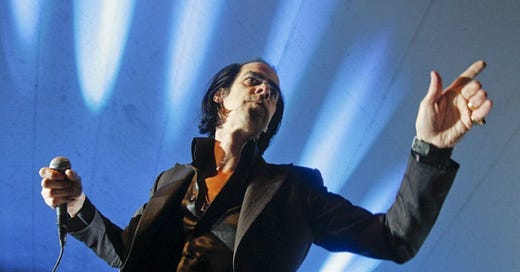



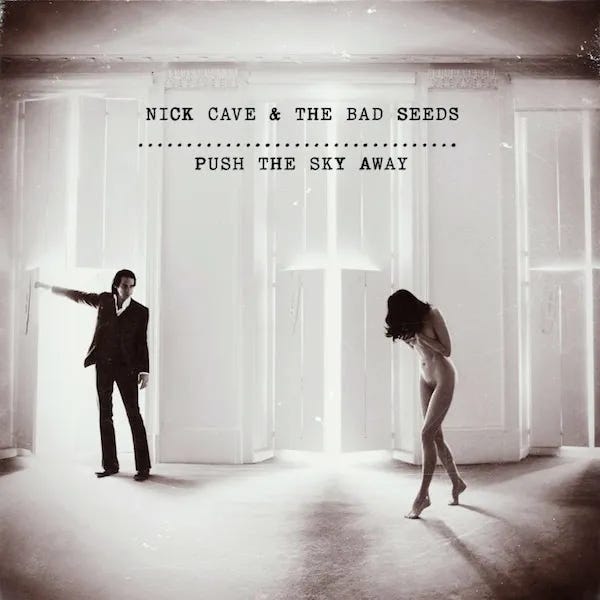

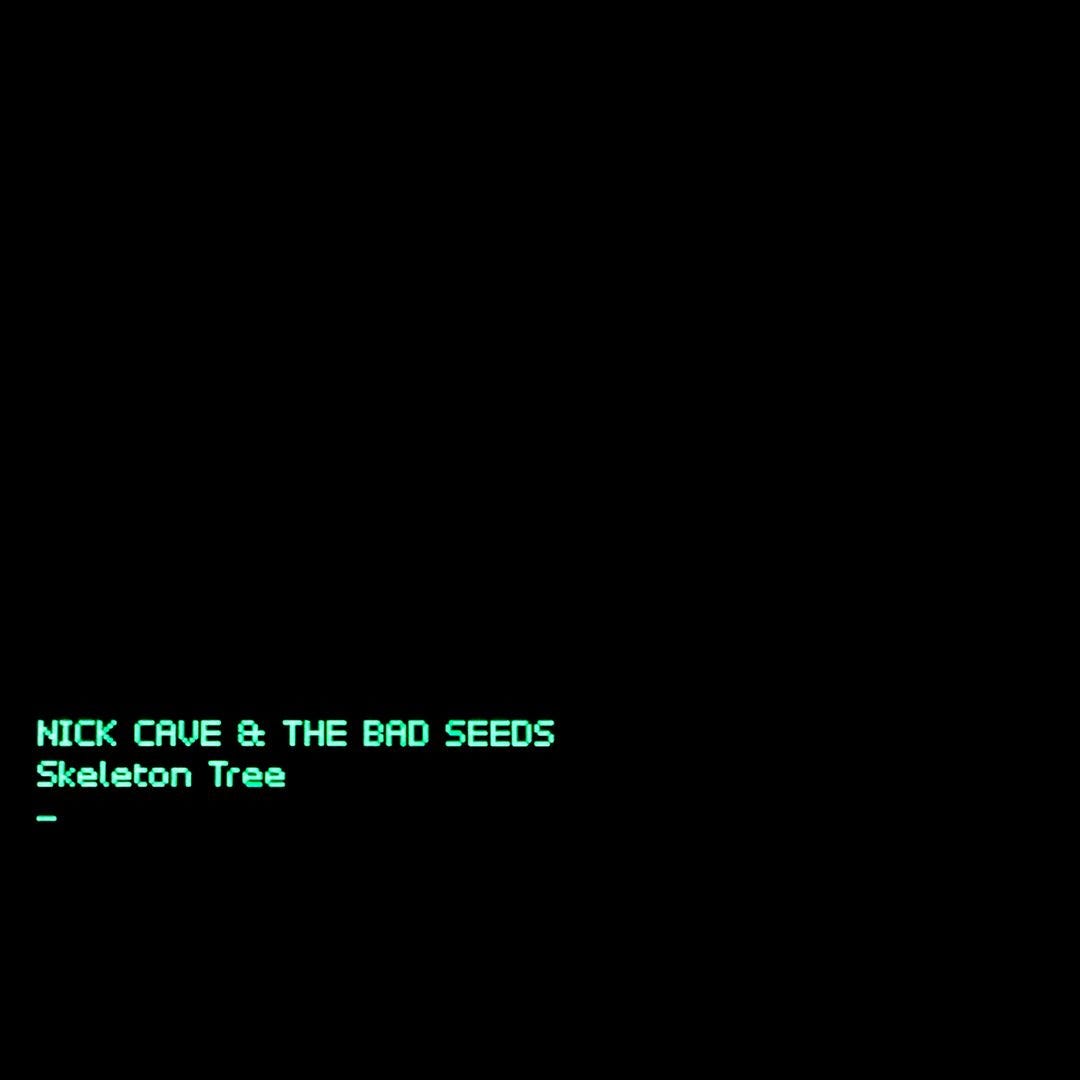

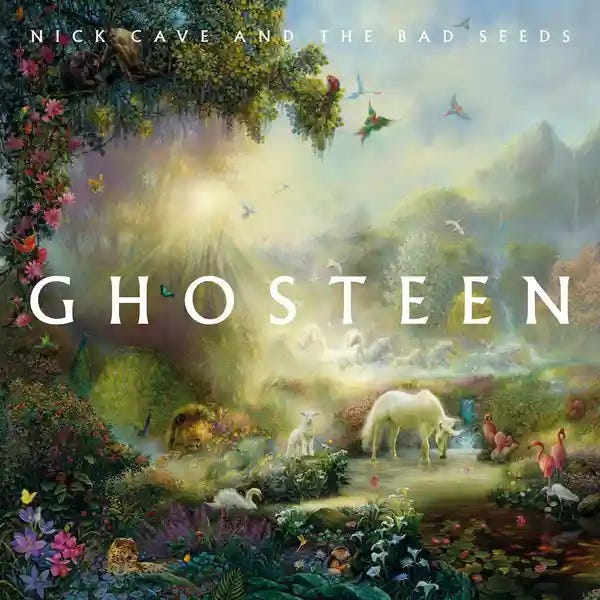
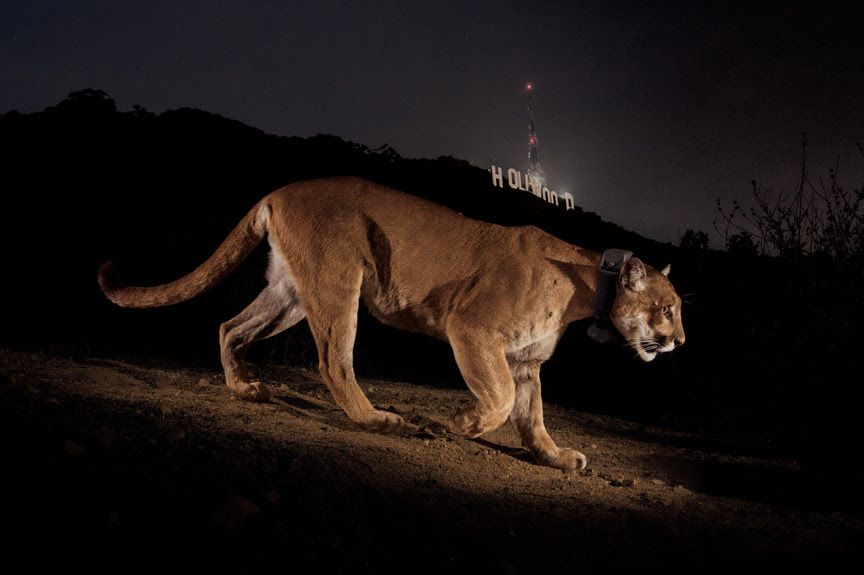

Just one final thank-you Mitchell for giving me the opportunity to 'spout on' about Nick and his Bad Seeds over six guest posts (and thirty-five years worth of music).
It turned into a bit of an epic, but I ended up relishing the process.
I just hope (given I don't get to see your stats) that at least a few of your readers also enjoyed the journey!
All the best, Tim.